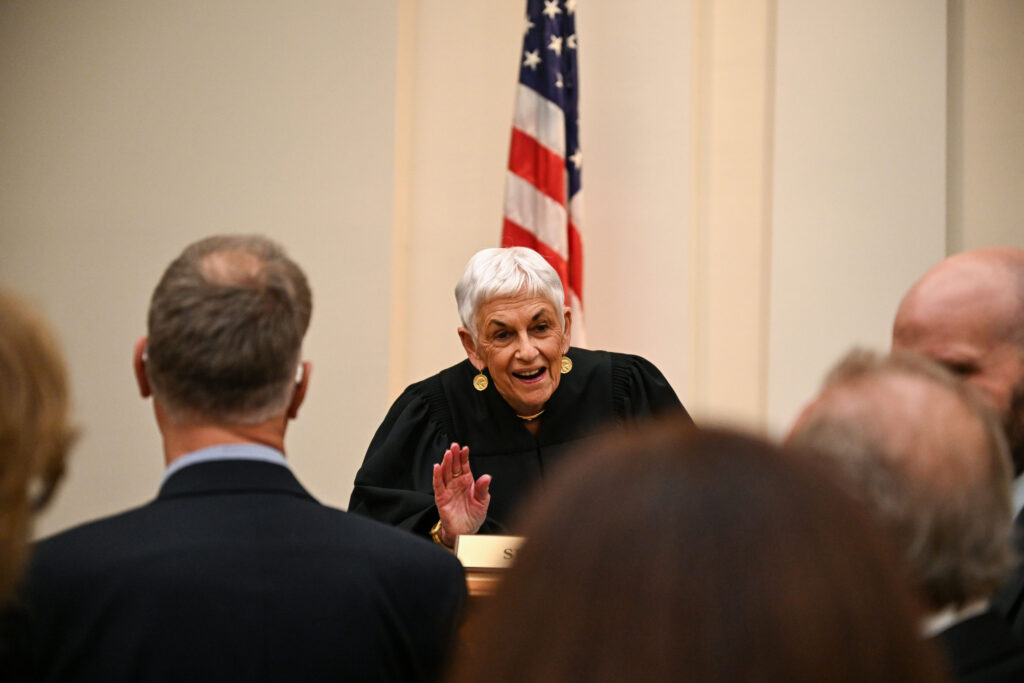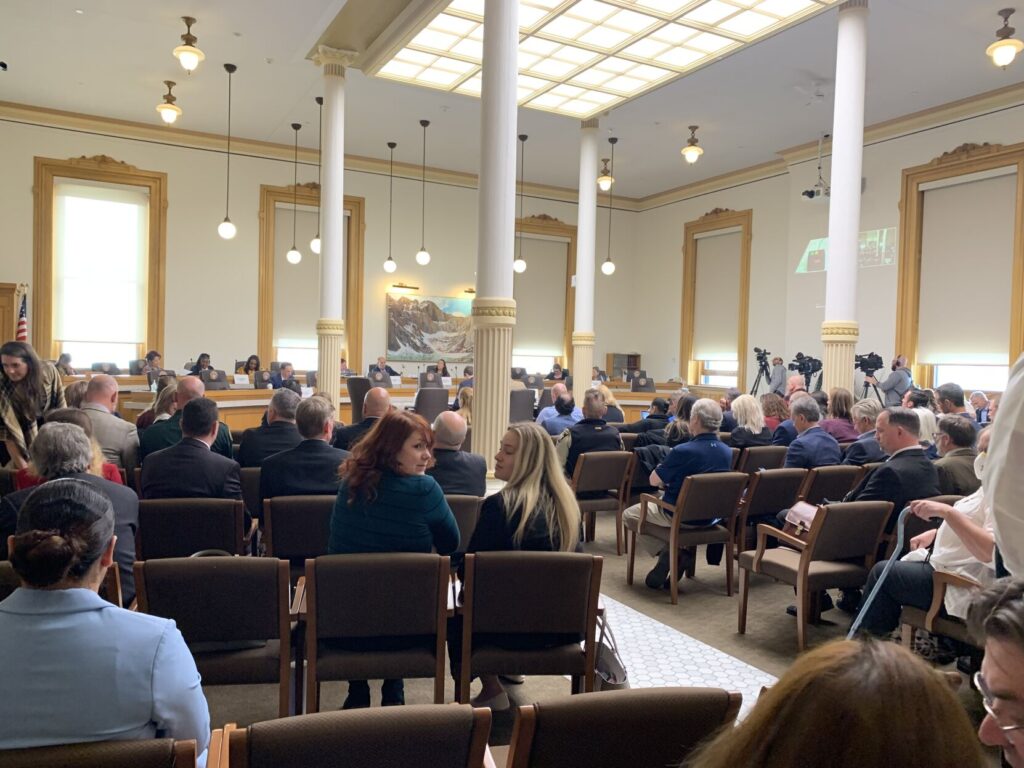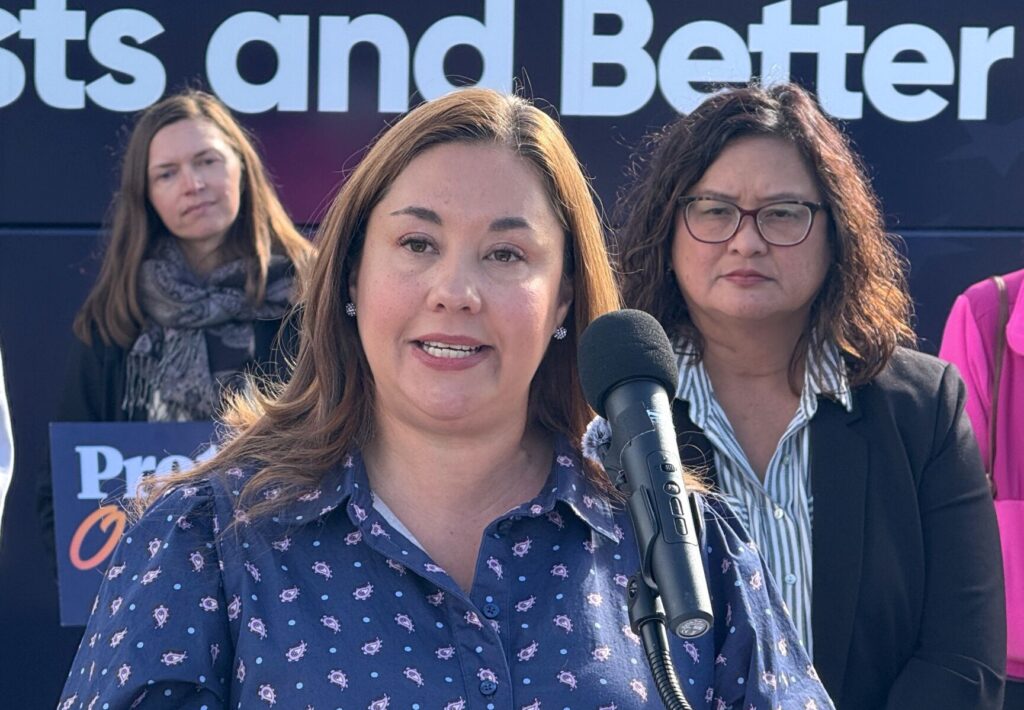Change in Metro’s admission standards could prove a little testy at Legislature
The new chair of the Joint Budget Committee has stirred up a bit of a hornet’s nest with a bill that would radically change the mission and admission standards for Metropolitan State University of Denver. And it’s not a change that they sought.
Sen. Kent Lambert, R-Colorado Springs, is the prime sponsor of Senate Bill 15-072, which would change Metro’s admissions standards from “modified open” to “moderately selective.”
The state has five standards for granting admissions to its public colleges and universities. Metro currently falls under “modified open,” which means any applicant age 20 or older can be admitted with a high school diploma or GED. Those under 20 must meet additional criteria. Metro is the only higher education institution in the state with modified open standards.
Moving to “moderately selective” would place Metro in the same category as Western State Colorado University, Adams State University and Colorado State University-Pueblo. Under that standard, applicants would have to meet a higher admissions score; a high school diploma or GED would not be enough.
Metro spokesperson Cathy Lucas said that Metro was not looking to change to their admissions standards. Initial data from the university shows that about 1,200 students would be affected by the admissions change. That would include 432 students of color, although Lucas said some of those students could fall under the “admissions window,” an admissions practice that allows an institution to admit a student who doesn’t meet the normal admissions standards. The university is in the midst of a more detailed policy and financial analysis on the bill’s impact.
As of press time, Metro officials and Lambert had not yet met about the bill.
According to its 2014 profile, the University serves 21,179 students, with students of color making up 34 percent of the population. The University is rated as among the top 100 colleges and universities nationwide for enrolling Latino students by the Hispanic Outlook in Higher Education. The University is nearing the end of a 10-year plan to be designated a Hispanic Serving Institution by the U.S. Department of Education, with a goal of reaching Latino enrollment of 25 percent by 2017. As of 2012, Metro was at 19.5 percent.
The institution is proud of its outreach to underserved students, including non-traditional and students of color. The University was one of 49 institutions last year that received grants from the U.S. Department of Education, designed to go to institutions that serve minority students, to broaden access to international and foreign language education.
Metro has sought to increase its profile and expand its offerings; in 2012 it received legislative authority to change its name from Metropolitan State College of Denver to Metropolitan State University of Denver. Senate Bill 12-148 stated in its legislative declaration that Metro’s peers, regional comprehensive institutions that are similar in size and scope are known as universities, not colleges. A change from college to university would reflect the institution’s “maturation, expansion and evolution…”
That maturation has included allowing the university to offer graduate programs, beginning in 2010. And ranking services have noticed: In 2013, U.S. News & World Report ranked Metro 23rd among regional colleges in the West, although it dropped out of the top 25 last year.
But the university has been at the receiving end of criticism from lawmakers for its low graduation rates. According to the 2014 report on graduation rates from the Colorado Department of Higher Education, the University’s four-year graduation rate was 5.7 percent. For students who took six years to complete their degrees, the rate was 26 percent. Both fall well below the statewide average of 30.2 percent and 53.4 percent, respectively.
That’s where Lambert comes in. He told The Colorado Statesman this week that if Metro wants to be a university, its admission standards need to be on par with other universities in the state.
“We’ve been looking at Metro’s success rates for a number of years,” Lambert said, and pointed out that their graduation rates are among the lowest in the state.
He noted that when the institution began in the 1970s, it was intended to be an open admissions college, and CU Denver was going to be the more selective institution. But over the past 40 years, and particularly in the last decade, CU Denver has evolved into more of a graduate/professional school, and Metro has moved up to being a four-year university, he said.
Lambert said his focus is on student success. He doesn’t want to see students getting into programs, spending time and money, and then not having a path to graduation. The General Assembly has supported Metro’s name change, he noted, but the time has come that their admission standards match the standards of the state’s other four-year universities.
Lambert said students who may not be qualified to go to a four-year university should go to the community colleges, which have open enrollment. Then they can succeed in their education and move on.
Cost is also an issue, Lambert said. If students aren’t successful, “are we efficiently using our money?” But in the end, Lambert said he wants to see students succeed, and for Metro to succeed and be competitive with the other four-year universities.
SB 72 is scheduled for hearing in the Senate Education Committee on Thursday, Jan. 29 at 1:30 p.m.
— Marianne@coloradostatesman.com
Colorado Politics Must-Reads:











